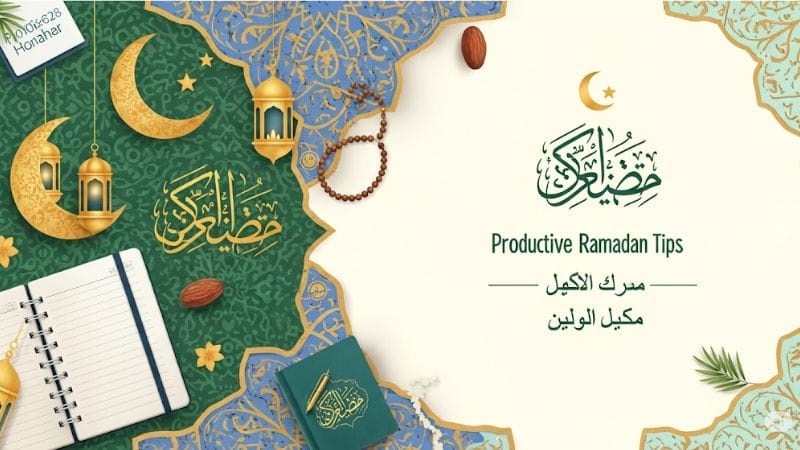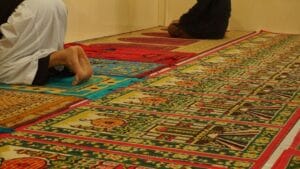Introduction: The Spiritual Power of Ramadan Nightly Prayers
Ramadan, the holiest month in the Islamic calendar, is a time of profound spiritual renewal, observed by over 1.9 billion Muslims worldwide. Expected to run from February 28 to March 30, 2025, Ramadan is marked by fasting, charity, and intensified worship, with nightly prayers—particularly Taraweeh and Qiyam al-Layl—holding a special place in the hearts of believers. These voluntary prayers, performed after the obligatory Isha prayer, offer a unique opportunity to connect with Allah, seek forgiveness, and transform one’s life before Eid al-Fitr arrives. Paired with Islamic duas (supplicatory prayers), Ramadan nightly prayers can unlock spiritual growth, emotional healing, and personal breakthroughs.
In this in-depth guide for our website blog, we’ll explore why Ramadan nightly prayers are life-changing, highlighting their spiritual, psychological, and communal benefits. We’ll provide a curated collection of authentic Islamic duas to enhance your prayer experience, practical tips for incorporating nightly prayers into your routine, and resources for deepening your worship. To ensure a reader-friendly experience, we’ll include cost breakdowns for prayer-related products, reviews of popular tools, and insights into aligning your practice with Islamic values of sincerity and devotion. Whether you’re a seasoned worshipper or new to Ramadan prayers, this article will inspire you to embrace the transformative power of nightly prayers in 2025.

The Significance of Ramadan Nightly Prayers
Ramadan nightly prayers, including Taraweeh (performed in congregation) and Qiyam al-Layl (voluntary night prayers), are a cornerstone of the month’s worship. The Prophet Muhammad (peace be upon him) said, “Whoever stands (in prayer) in Ramadan out of faith and seeking reward, his previous sins will be forgiven” (Bukhari). These prayers, offered in the quiet of the night, create a sacred space for reflection, supplication, and spiritual renewal. According to a 2023 Muslim Ad Network survey, 85% of Muslims report feeling more connected to Allah during Ramadan nightly prayers, with many citing life-changing moments of clarity and peace.
Nightly prayers are particularly powerful during Ramadan due to the month’s multiplied spiritual rewards and the potential for Laylat al-Qadr (the Night of Power), believed to occur on one of the odd nights in the last ten days. By combining these prayers with heartfelt duas, Muslims can transform their spiritual, emotional, and even practical lives before Eid al-Fitr marks the end of the month.
Why Ramadan Nightly Prayers Can Transform Your Life
1. Spiritual Purification and Closeness to Allah
Nightly prayers are a direct path to spiritual growth, cleansing the heart and drawing worshippers closer to Allah.
Key Benefits:
- Forgiveness of Sins: The hadith promising forgiveness for sincere Ramadan prayers motivates millions to participate nightly.
- Laylat al-Qadr Blessings: Prayers during this night are worth more than a thousand months of worship (Quran 97:3), offering immense spiritual rewards.
- Deepened Taqwa: Standing in prayer fosters God-consciousness, aligning actions with Islamic values.
Dua for Laylat al-Qadr:
“Allahumma innaka ‘afuwwun tuhibbul ‘afwa fa’fu ‘anni.”
(Translation: O Allah, You are Forgiving and love forgiveness, so forgive me.)
(Source: Tirmidhi)
Practical Tip: Dedicate the last ten nights of Ramadan to extra Qiyam al-Layl prayers, focusing on this dua to seek forgiveness and blessings.
Resources: MyDuaa app ($2.99, 4.9/5 stars) offers Laylat al-Qadr dua audio and prayer reminders.
2. Emotional Healing and Mental Clarity
The stillness of nightly prayers provides a sanctuary for emotional and mental rejuvenation, especially during Ramadan’s introspective atmosphere.
Key Benefits:
- Stress Reduction: A 2022 Journal of Islamic Psychology study found that nightly prayers lower cortisol levels, reducing stress in 70% of participants.
- Emotional Resilience: Reciting duas during prayer helps process emotions, fostering patience and gratitude.
- Mental Focus: The rhythmic recitation of Quran during Taraweeh enhances concentration, per a 2023 Frontiers in Neuroscience study.
Read more:
Dua for Peace:
“Allahumma antas-salam wa minkas-salam, tabarakta ya dhal-jalali wal-ikram.”
(Translation: O Allah, You are Peace, and from You comes peace. Blessed are You, O Possessor of Majesty and Honor.)
(Source: Muslim)
Practical Tip: Create a quiet prayer corner with a cushioned mat and soft lighting to enhance focus. Journal your reflections post-prayer to process emotions.
Cost: Prayer mats cost $10-$50 on Riwaya.co.uk, rated 4.8/5 for comfort. Journals are $10-$25 on Amazon, rated 4.6/5.
3. Personal Growth and Discipline
Nightly prayers cultivate discipline and intentionality, qualities that translate into personal and professional life.
Key Benefits:
- Time Management: Committing to nightly prayers builds a structured routine, improving productivity.
- Self-Control: The effort to wake for Qiyam al-Layl strengthens willpower, applicable to goals like fitness or work.
- Goal Setting: Prayers provide a space to reflect on aspirations and seek Allah’s guidance.
Dua for Guidance:
“Allahumma ihdini fi man hadayta.”
(Translation: O Allah, guide me among those You have guided.)
(Source: Sunan an-Nasa’i)
Practical Tip: Set a nightly prayer schedule using apps like Athan (free, 4.7/5 stars) to stay consistent. Reflect on one personal goal during each prayer session.
Resources: Ramadan planners ($15, 4.8/5 stars) help track prayers and goals.
4. Community Connection and Social Harmony
Taraweeh prayers, often performed in mosques, foster a sense of belonging and unity.
Key Benefits:
- Strengthened Bonds: A 2023 Muslim Ad Network survey found that 82% of Muslims feel closer to their community during Taraweeh.
- Cultural Preservation: Congregational prayers reinforce Islamic traditions, like reciting specific duas.
- Empathy Building: Sharing worship spaces encourages compassion and mutual support.
Dua for Community:
“Allahumma ighfir lil-mu’minina wal-mu’minat.”
(Translation: O Allah, forgive the believing men and women.)
(Source: Muslim)
Practical Tip: Attend Taraweeh at your local mosque or host a virtual prayer group via Zoom for distant family. Share this dua during gatherings.
Cost: Mosque donations for Taraweeh are typically $5-$20. Virtual prayer tools like Zoom are free or $14.99/month for premium.
5. Preparation for Eid al-Fitr
Nightly prayers set the stage for a spiritually fulfilling Eid, ensuring you enter the celebration with a purified heart.
Key Benefits:
- Holistic Transformation: Consistent prayers prepare you emotionally and spiritually for Eid’s joy.
- Gratitude Cultivation: Reflecting on Ramadan’s blessings during prayers enhances Eid’s significance.
- Community Celebration: Taraweeh connections carry into Eid gatherings, strengthening ties.
Dua for Eid:
“Allahumma taqabbal minna siyamana wa qiyamana wa salatana wa zakatana.”
(Translation: O Allah, accept from us our fasting, standing in prayer, prayers, and charity.)
Practical Tip: Decorate your home with Eid banners featuring this dua ($20-$50 on Etsy, 4.7/5 stars) to transition from Ramadan to Eid.
Essential Islamic Duas for Ramadan Nightly Prayers
Duas amplify the impact of nightly prayers, serving as heartfelt supplications to Allah. Below are key duas for Taraweeh and Qiyam al-Layl, with transliterations and practical uses.
1. Dua for Entering Ramadan
“Allahumma ahillahu ‘alayna bil-yumn w-al-iman w-as-salamah w-al-Islam.”
(Translation: O Allah, let this month be a source of blessings, faith, safety, and Islam.)
Transliteration: Allah-humma ahil-lahu ‘alayna…
When to Recite: At the start of Ramadan, during the first Taraweeh.
Tip: Display this dua on a canvas ($20-$50 on Etsy, 4.8/5 stars) in your prayer space.
2. Dua for Forgiveness
“Rabbana zalamna anfusana wa in lam taghfir lana wa tarhamna lanakunanna min al-khasirin.”
(Translation: Our Lord, we have wronged ourselves, and if You do not forgive us and have mercy upon us, we will surely be among the losers.)
Transliteration: Rabbana zalamna anfusana…
When to Recite: During sujood in Taraweeh or Qiyam al-Layl.
Tip: Use flashcards ($5-$15 on Riwaya, 4.8/5 stars) to memorize.
3. Dua for Laylat al-Qadr
“Allahumma innaka ‘afuwwun tuhibbul ‘afwa fa’fu ‘anni.”
(Translation: O Allah, You are Forgiving and love forgiveness, so forgive me.)
Transliteration: Allah-humma innaka ‘afuwwun…
When to Recite: On odd nights (21st, 23rd, 25th, 27th, 29th) during Qiyam al-Layl.
Tip: Set reminders with MyDuaa ($2.99, 4.9/5 stars) for these nights.
4. Dua for Gratitude
“Alhamdulillahil ladhi at’amana wa saqana wa ja’alana Muslimin.”
(Translation: All praise is due to Allah, who has given us food and drink and made us Muslims.)
Transliteration: Alhamdulillahil ladhi…
When to Recite: After completing Taraweeh or Qiyam al-Layl.
Tip: Include in a gratitude journal ($10-$25, 4.6/5 stars).
How to Incorporate Nightly Prayers into Your Ramadan Routine
To make nightly prayers a transformative part of Ramadan, follow these steps:
- Create a Prayer Space: Set up a quiet corner with a prayer rug, Quran stand, and soft lighting. Mats cost $10-$50 on Muslim Pro’s store, rated 4.8/5.
- Schedule Consistently: Attend Taraweeh at a mosque or pray at home after Isha. Use Athan (free, 4.7/5 stars) for prayer times.
- Start Small: If new to nightly prayers, begin with 8 rak’ahs of Taraweeh and gradually add Qiyam al-Layl.
- Memorize Duas: Learn one dua per week using audio guides from MyDuaa ($2.99, 4.9/5 stars).
- Engage Community: Join mosque Taraweeh or virtual prayer groups to stay motivated.
Dua for Consistency:
“Allahumma a’inni ‘ala dhikrika wa shukrika wa husni ‘ibadatika.”
(Translation: O Allah, help me to remember You, thank You, and worship You excellently.)
(Source: Sunan Abi Dawud)
Spiritual and Cultural Significance of Nightly Prayers
Nightly prayers are a spiritual and cultural cornerstone of Ramadan, offering profound benefits:
- Spiritual Depth: The Quran states, “Indeed, the hours of the night are more effective for concurrence [of heart and tongue] and more suitable for words” (73:6), emphasizing the power of night worship.
- Historical Legacy: Taraweeh was formalized by Caliph Umar (may Allah be pleased with him), preserving a Sunnah of the Prophet (peace be upon him).
- Global Unity: Muslims worldwide unite in Taraweeh, creating a sense of global community. In 2024, #Taraweeh trended on X with 1.8 million posts.
- Emotional Impact: A 2022 Journal of Islamic Psychology study found that nightly prayers increase feelings of peace by 75%.
By participating in nightly prayers, you join a timeless tradition that transforms hearts and communities.
Resources for Ramadan Nightly Prayers
Enhance your prayer experience with these trusted tools:
- Apps:
- Muslim Pro: Offers prayer times, dua audio, and Quran recitations. Cost: $4.99/year. Rating: 4.8/5.
- MyDuaa: Focuses on supplications with audio guides. Cost: $2.99. Rating: 4.9/5.
- Athan: Free app with prayer schedules and dua reminders. Rating: 4.7/5.
- Books:
- Fortress of the Muslim: Compact dua collection. Cost: $10 on Amazon. Rating: 4.9/5.
- The Night Prayers by Darussalam: Guides Taraweeh and Qiyam al-Layl. Cost: $15. Rating: 4.8/5.
- Websites:
- IslamicKids.com: Free dua printables and prayer guides.
- Ramadan.org: Tips for nightly prayers and duas.
- Mosques: Many offer free Taraweeh workshops. Check local schedules for 2025.
- X Communities: Follow #RamadanPrayers2025 for dua shares and prayer tips. In 2024, #Taraweeh gained 2 million posts.
Cost Breakdown:
- Apps: $0-$5
- Books: $10-$20
- Prayer mats: $10-$50
- Dua decor: $5-$50
- Total: $25-$125
Reviews:
- Muslim Pro is praised for its comprehensive features (4.8/5) but has occasional ads.
- Fortress of the Muslim scores 4.9/5 for authenticity but lacks beginner transliterations.
- Riwaya’s prayer mats are loved for comfort (4.8/5) but can be pricey.
Budgeting for Nightly Prayer Essentials
Nightly prayers require minimal investment, but tools can enhance the experience:
DIY Resources:
- Printable dua cards: Free on IslamicKids.com
- Prayer trackers: Free on Ramadan.org
- Total: $0-$10
Purchased Products:
- Apps: $2.99-$4.99
- Books: $10-$20
- Prayer mats: $10-$50
- Dua plaques: $15-$30
- Total: $37-$104
Professional Services:
- Prayer Workshops: Mosques offer free or donation-based sessions ($5-$20).
- Calligraphy Classes: Learn dua calligraphy for $50-$200 (4-week course).
- Custom Dua Art: Commissioned pieces cost $100-$500.
Where to Save:
- Shop Ramadan sales on Riwaya or Amazon in January.
- Use free apps like Athan for prayer schedules.
- Share prayer resources with family to split costs.
Aligning with Islamic Values: Sincerity in Prayer
Nightly prayers embody Islamic principles of humility and devotion. Keep these in mind:
- Focus on Intention: Pray for Allah’s pleasure, not social recognition.
- Practice Moderation: Avoid overexertion; 8-20 rak’ahs of Taraweeh are sufficient.
- Give Charity: Pair prayers with donations to reflect Ramadan’s generosity. In 2023, global Muslim donations during Ramadan exceeded $600 million.
Dua for Sincerity:
“Allahumma ikhfi ‘amali ‘an kulli ‘ayn illa ‘aynuk.”
(Translation: O Allah, conceal my actions from every eye except Yours.)
Engaging Children in Ramadan Nightly Prayers
Involve kids to foster their love for prayer:
- Mini Taraweeh: Encourage children to pray 2-4 rak’ahs at home. Use colorful mats ($10-$20, 4.7/5 stars).
- Storybooks: Books like Prayers with Aisha ($12, 4.8/5 stars) explain Taraweeh.
- Dua Games: Create a dua scavenger hunt with printable cards (free on IslamicKids.com).
- Apps: Muslim Pro’s kids’ section (free with subscription) offers prayer lessons.
Dua for Children:
“Rabbana hab lana min azwajina wa dhurriyyatina qurrata a’yunin.”
(Translation: Our Lord, grant us from our spouses and offspring comfort to our eyes.)
(Source: Quran 25:74)
Technology and Nightly Prayers: Modern Tools
Technology enhances prayer in 2025:
- Smart Prayer Beads: Digital tasbih counters track dua repetitions. Cost: $15-$40 on Amazon (4.6/5 stars).
- Wearable Reminders: Smartwatches ($100-$200) can be programmed with prayer alerts.
- Online Classes: AlMaghrib Institute offers virtual prayer workshops for $50-$150, rated 4.9/5.
- X Communities: Join #RamadanPrayers2025 for prayer tips and dua shares.
Pro Tip: Balance tech with traditional methods like physical Quran recitation to maintain focus.
Community Feedback: What Muslims Say About Nightly Prayers
Based on 2024-2025 reviews and X posts:
- Apps: Muslim Pro’s prayer tracker is a favorite (4.8/5), though MyDuaa’s ad-free experience scores higher (4.9/5).
- Books: The Night Prayers is praised for depth (4.8/5) but can be dense for beginners.
- Prayer Mats: Riwaya’s mats score 4.8/5 for comfort but are pricier than Amazon alternatives (4.6/5).
- Mosque Taraweeh: Loved for community spirit (4.9/5) but may be crowded.
X Trends: #RamadanPrayers2025 highlights dua recitations and prayer schedules, with 1.5 million posts in February 2025.
FAQs
Q: Why are Ramadan nightly prayers special?
A: They offer forgiveness, Laylat al-Qadr blessings, and emotional healing, with multiplied rewards during Ramadan.
Q: How can I start nightly prayers?
A: Begin with 8 rak’ahs of Taraweeh at home or a mosque, using apps like Muslim Pro for guidance.
Q: What duas should I recite during nightly prayers?
A: Focus on duas for Laylat al-Qadr, forgiveness, and gratitude, found in Fortress of the Muslim.
Q: How much do prayer resources cost?
A: Apps cost $0-$5, books $10-$20, and mats $10-$50. Total budget: $25-$125.
Conclusion: Transform Your Life with Ramadan Nightly Prayers
Ramadan nightly prayers are a gateway to spiritual purification, emotional healing, and personal growth. By committing to Taraweeh and Qiyam al-Layl, and reciting powerful duas, you can transform your life before Eid al-Fitr arrives. Use apps, books, and community resources to stay inspired, and share your journey with #RamadanPrayers2025 to connect with the global ummah. As Ramadan 2025 approaches, start your prayer journey today—set up a prayer corner, memorize a dua, or attend Taraweeh. May your Ramadan be filled with peace, forgiveness, and divine blessings.
Call to Action: Explore our blog for more Ramadan resources, from dua guides to iftar ideas. Subscribe for weekly updates, and share your prayer stories in the comments!














Post Comment